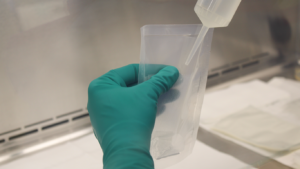Have you ever wondered how much your damaged car is worth after an accident?
Documenting and supporting your auto wreck resale value claim is essential to ensure you receive fair compensation. Whether you’ve been in a minor fender-bender or a serious collision, knowing the correct steps can make a big difference.
This guide will help you understand what information and evidence you need to gather. With the right approach, you can effectively support your claim and maximize your potential payout.
Let’s explore the key steps to keep in mind during this process.
Take Comprehensive Photos
Taking clear and detailed photos of your damaged car is a key part of supporting your claim. Start by capturing the overall view of the vehicle from different angles. Then, zoom in on specific damages like scratches, dents, or any broken parts.
Good lighting helps show the true condition of the car, so take pictures on sunny days if possible. Remember to include the vehicle’s license plate and any relevant documents like the police report.
These resale value tips help show the extent of damage and can boost your chances of getting a fair payout. Organized and high-quality photos make your claim stronger and easier to understand for the insurance company.
Keep Repair Estimates
Collecting repair estimates is very important for your claim. Get quotes from at least two different auto repair shops. These estimates show how much it will cost to fix your wrecked car.
Make sure the estimates are clear and detailed. The repair shops should list all the damages and the costs for each repair. This information helps prove the value of your wrecked car.
When you send your estimates to the insurance company, they understand how much your car is worth after the accident. Keep all your estimates in a safe place. Having them ready can make the claims process smoother and help you get fair compensation for your vehicle.
Collect Maintenance Records
Keeping good maintenance records is important for your auto wreck resale value claim. These records show how well you took care of your car before the accident.
Save receipts for oil changes, tire rotations, and any repairs done to your car. This information can help prove that your car is in good shape and running well. When you show the insurance company that you regularly maintained your vehicle, it can have a positive car resale impact.
If your car has regular repairs and services, it can help raise its value. Keep these records organized and ready to share when needed to support your claim and ensure you get fair compensation after the accident.
Document Mileage
Keeping track of your car’s mileage is important when you file a claim. Record the number of miles on your car’s odometer before the accident. This detail helps show how much your car was used and how much it might be worth.
If you have the car’s mileage before the crash, write it down and take a photo of the odometer. You can also track any trips you made if you wrote them in a journal. These records let the insurance company see your car’s history.
If your car had low mileage, it could mean a better resale value. Be sure to keep this information safe and include it with your other documents.
Research Pre-Accident Value
To build a strong case for your auto wreck resale value claim, researching your car’s value before the accident is crucial. Look up the make, model, and year of your vehicle to find its market value using online resources like Kelley Blue Book or Edmunds. This information helps you understand how much your car was worth before the damage occurred.
You can also check local listings and sales for similar vehicles. Knowing this value can support your Diminished Value Claim, which shows how much value your car lost after the accident. Having clear evidence of your car’s worth helps the insurance company understand your claim better, increasing your chance of receiving fair compensation.
Gather Witness Statements
If someone saw the accident, ask them for a statement. Witnesses can help support your claim by giving their view of what happened. Their statements can explain how the accident occurred and what damage your car had.
Make sure to get their names and contact information. You can ask them to write down their story or record a video. Their words can be strong evidence for your case.
When you submit these statements to the insurance company, it shows that other people agree with your version of the events. This extra proof can make your claim stronger and help you get the fair compensation you deserve after your accident.
Secure a Police Report
Getting a police report after your accident is important for your claim. A police report records facts about the crash. It includes information about who was involved, how the accident happened, and any damages.
When the police arrive at the scene, they often gather details and talk to witnesses. Make sure to ask for the report number and the officer’s name. You can request a copy later. This report helps support your case.
Insurance companies often look at these reports to understand what happened. By having the police report, you add important proof to your claim, making it easier to show the true value of your damaged car.
Consult with an Appraiser
Consulting with an appraiser can be a smart move when filing your auto wreck resale value claim. An appraiser is a professional who knows how to evaluate cars and their damage. They can help you determine how much your damaged car is worth.
When you meet with an appraiser, show them all the documents you’ve gathered, like photos and repair estimates. They will consider the age, condition, and market value of your car.
After their assessment, you will receive a detailed report. This report can strengthen your claim by providing an expert’s opinion on your car’s value. Using an appraiser can help you get the compensation you deserve after the accident.
Ensure You Get a Fair Payout After Your Auto Wreck
After an auto wreck, it’s important to keep all the right documents. By taking photos, gathering repair estimates, and having maintenance records, you can show the real value of your car.
Don’t forget to get a police report and think about talking to an appraiser for better help. Following these steps will make it easier for you to get the fair payment you deserve after an auto wreck.
Please take a look at our blog for more educational articles.




